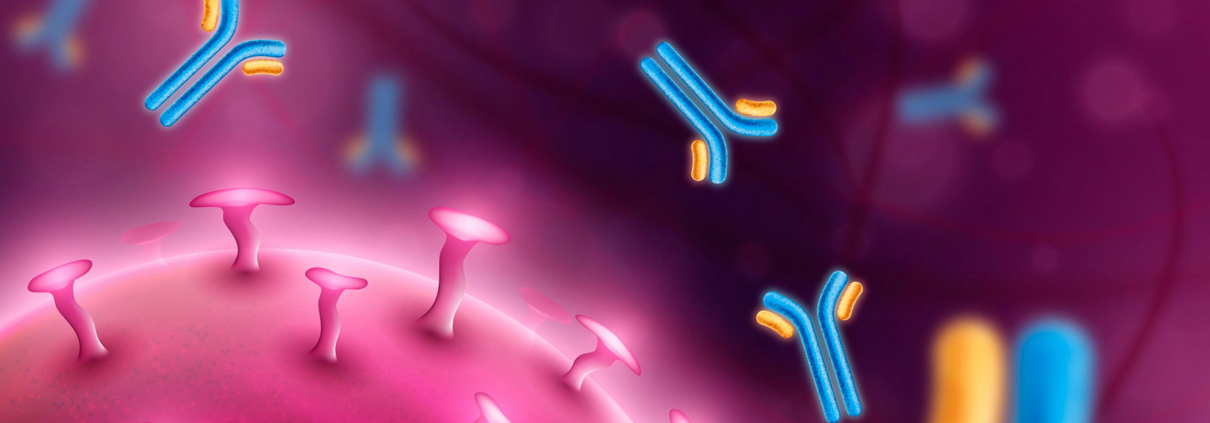Potential biomarkers for bladder and colon cancer
Non-phosphorylated and Phosphorylated Signal Transduction Peptide (STP) of Tissue Factor (TF) in Urine are Potential Biomarkers for Bladder and Colon Cancer.
Objective
Tissue factor (TF, CD142) is commonly associated with the initiation of blood clotting. Many studies have shown that solid cancers including colon, breast, prostate, bladder and pancreas express high levels of TF and there is evidence that TF plays an integral role in the carcinogenic process as well as in metastasis.
The objective of this study was to develop immunoassay methods to investigate the TF-STP (signal transduction peptide) domain in urinary microvesicles from healthy individuals and patients with various tumour types. Using immunological methods to quantitate unphosphorylated TF and TF phosphorylated at ser253 and ser258.
Process
Fusion Antibodies generated monoclonal antibodies (Anti-TF2 Mab and Anti-TF2-PSer253 Mab) to specifically target two peptides in the STP region of TF.
Both polyclonal and monoclonal antibodies directed against various phosphorylated and unphosphorylated peptides were used to construct three ELISAs that specifically recognise unphosphorylated TF and TF phosphorylated at ser253 or at ser258. Urine samples were obtained from healthy individuals and from patients with various solid tumour types.
The results were presented as ng/ml of urine for each of the 3 anayltes in each sample. ROC curves were plotted for each diagnostic measurement and the area under the curve calculated. Optimal cut-off points were calculated from the ROC curves using the Youden Index. Sensitivities, specificities, positive predictive value (PPV) and negative predictive values (NPV) were calculated for each of the diagnostic measurements.
Results and conclusion
In summary, three highly sensitive ELISA assays were developed by Fusion Antibodies to quantitate unphosphorylated TF, TF-Pser253 and TF-Pser258 in urine. TF-Pser258 represents a potential new urinary biomarker for bladder cancer including early disease. Unphosphorylated TF is also a novel marker for advanced bladder cancer and their concurrent use may allow a nuanced approach to the diagnostics of bladder cancer from the outset. TF-Pser253 had a sensitivity of 71% and specificity of 69% at 0.55 ng/ml cut-off determined by ROC analysis. Suggesting that TF-Pser253 could be a promising urinary marker for early diagnosis of colon cancer.

